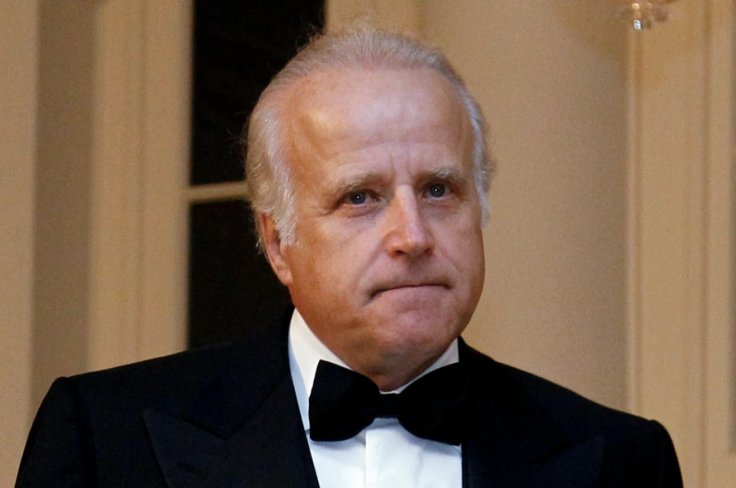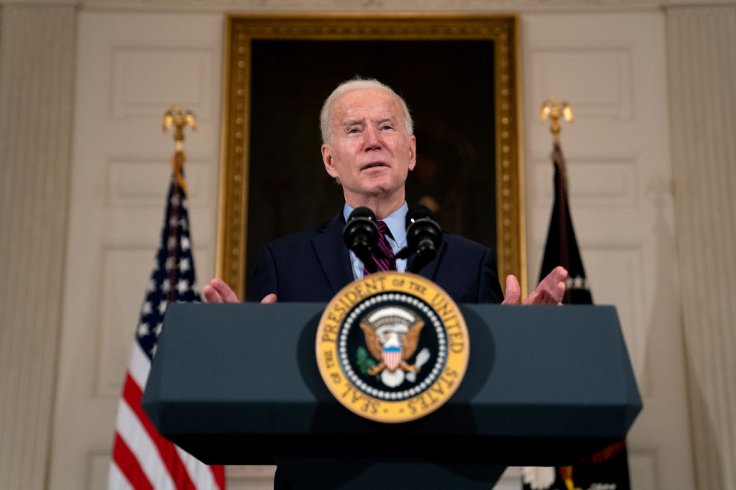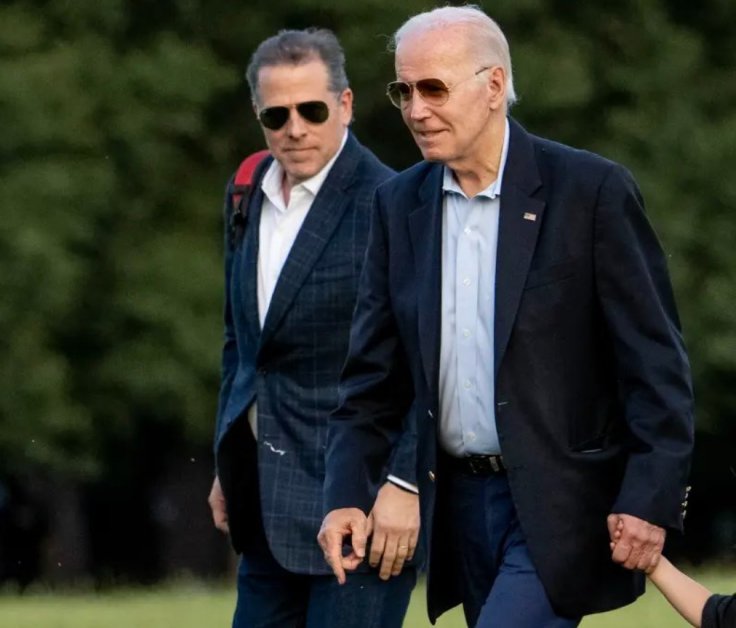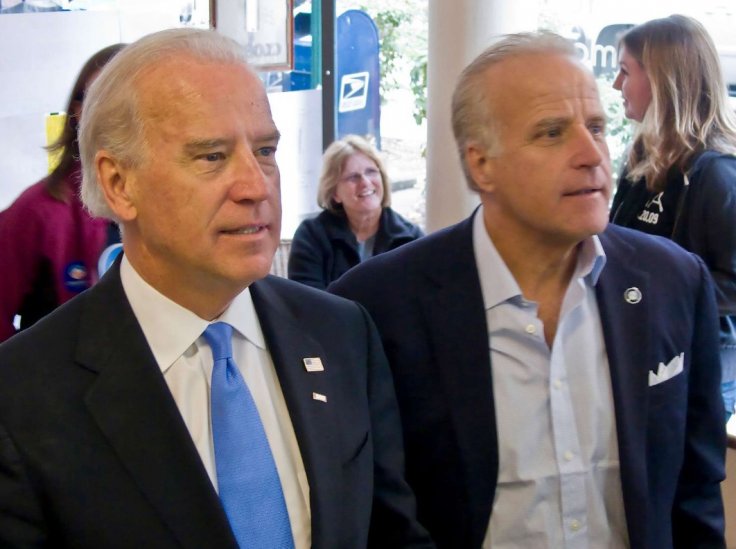James Biden, brother of former Vice President Joe Biden, confirmed during his testimony in the impeachment inquiry that a $40,000 check addressed to Joe Biden in 2017 used funds James had received from a company linked to the Chinese government. James also revealed that he continued to receive income from overseas as recently as last year.
The younger Biden brother, 74, sat for hours last week as members of the House Oversight and Judiciary Committees questioned him in private as part of their impeachment investigation targeting Joe, 81. Lawmakers are actively investigating whether Joe was involved in his family's shady business dealings with foreigners that netted them over $20 million.
Joe Received Money

GOP members claim that Joe Biden received direct payments from his brother, who allegedly leveraged their family name to create favorable opportunities and connections with foreigners, ultimately contributing to the family's financial gain.
Republicans heading the impeachment proceedings have made public the complete transcript of James Biden's extensive closed-door deposition, revealing several bombshell disclosures.

Among them, investigators focused on two payments, one amounting to $200,000 and another to $40,000, which James made to Joe Biden, categorizing them as "loan repayments."
During his testimony, James startlingly acknowledged that he used funds obtained from a deal with the Chinese energy company CEFC to settle the debt with his brother, specifically referring to the $40,000 payment.
However, James maintained that he did not think the company, CEFC China Energy, was under the control of Beijing.
He explained that he had misspoken during a 2022 interview with the IRS, where he had previously stated that Hunter Biden, working alongside him, had described CEFC chairman Ye Jianming as a "protégé" of Chinese President Xi Jinping.
James now claims that his earlier statement was an error.

"Where did you believe the source of the money that was going into [Hunter Biden's company] Owasco, prior to being sent to you, was coming from?" James was questioned by an investigator during the Feb. 21 interview, according to the official transcript released on Friday.
James admitted, "CEFC," after an extended exchange during which his attorney, Paul Fishman, tried to argue the fungibility of money. The discussion revealed that James "did not have sufficient funds" to independently make the $40,000 alleged loan repayment, prompting a reminder from a House staffer that the transaction was traceable.
The interview further revealed that James received $840,000 in four transactions between November 2022 and July 2023 from Argentinian businessman Jose Luis Manzano. James said that these funds originated from the sale of half of his stake in Manzano's holding of the Argentinian natural gas company Metrogas.

James explained to investigators that the $840,000 he received from Jose Luis Manzano was primarily his "sweat equity" in assisting Manzano with various ventures. He said that Manzano had requested him to attract Mexican billionaire Carlos Slim to invest in 4G in Argentina, although these efforts ultimately proved unsuccessful.
James confirmed that at one point, Manzano was "in discussions" about collaborating with CEFC (China Energy Company).
Truth Coming Out Finally
The first brother disclosed further, supposedly fruitless, international business endeavors. He claimed that around that time he used a $200,000 loan from the bankrupt rural hospital company Americore to pay back money from an additional alleged loan to Joe Biden in 2018, "I was looking for investments from Qatar, again, in infrastructure projects. They were building hotels in Miami."

While Democrats argue that these alleged loan repayments merely indicate familial support, with James insisting in his testimony that his brother Joe was not corrupt, Republicans contend that the transfers, even if considered loan repayments, suggest that the president benefited from his relatives' business dealings.
They point out that these transactions occurred while Joe Biden frequently engaged with their business associates, including those involved in the CEFC venture.
Bank records obtained through a subpoena revealed that the James Biden bank account, which issued the $40,000 check to Joe Biden, had a meager balance of only $46.88. Interestingly, just days before this transaction, on August 28, 2017, the account received an infusion of $50,000.

On the same day, the $50,000 deposited into James Biden's bank account had originated from funds withdrawn from his entity, Lion Hall Group.
Earlier, Lion Hall Group had received a $150,000 wire on August 14, even though the entity had a balance below $2,000 at that time, according to a bank record memo that was released by the House Oversight Committee in November.
The Biden family's association with CEFC proved to be both lucrative and controversial, concluding in 2018 when Ye Jianming, the chairman of CEFC, vanished amid corruption allegations in China. CEFC, which purported to be privately held, was widely regarded as part of Beijing's "Belt and Road" foreign influence initiative, making its international market impact significant.
James testified that he explored natural gas investment opportunities for CEFC along the Gulf Coast, but major proposals did not materialize. Nonetheless, he and Hunter Biden still profited in the millions from their partnership with CEFC.

Regarding the $40,000 check issued to Joe Biden on September 3, 2017, James claimed that it was a repayment of a personal loan to Joe. He emphasized the absence of loan paperwork or interest in this arrangement, and the check was provided by James' wife, Sara Biden.
Republicans are pointing out that the initial transfer of funds to James, weeks prior, originated from a law firm collaborating with various members of the Biden family and business associates.
They argue that this connection adds complexity to the situation. Additionally, they claim that Joe Biden had interactions with multiple business partners affiliated with CEFC, further raising questions about potential conflicts of interest or undue influence.









